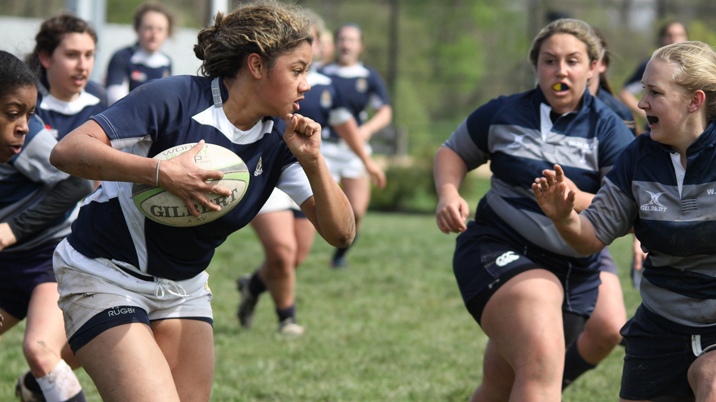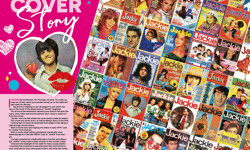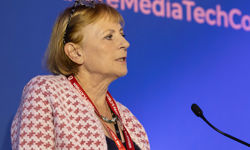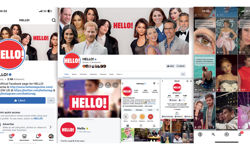
Freedom is not only given to you, “it trains” inside you. Sport is essential for the strength and values it instils and the barriers it can break down. It helps participants better address everyday issues and express their personality and opinion freely.
Sport empowers the freedom to create – and tell – stories, and we know how powerful and world-changing information sharing can be.
Wo*men's Rugby – Land of Freedom, sponsored by Atex, presents 35 interviews with women rugby players. From Uganda to Syria and Denmark to Italy, their stories address the importance of freedom.
Freedom of journalism expresses itself at different levels. And it resonates in the constant work to overcome political, cultural, technological and market barriers. At one level, it means having the tools, time and resources to tell your story. At another, it's the fight to bring the story to the audience.
Just a few weeks ago, within the context of the World News Media Congress in Zaragoza, the Women-In-News leadership award was given to Faith Zaba, editor of the Zimbabwe Independent, Diana Moukalled, co-founder of Daraj Media in Lebanon, and Regina "Ging" Reyes, Senior Vice President and Head of the Integrated News and Current Affairs Division of ABS-CBN Corporation in the Philippines.
"Equality and inclusion in the media are essential for a healthy and representative society", commented WAN-IFRA CEO Vincent Peyregne.
When I first met Erika Morri, founder of the Wom*n's Rugby – Land of Freedom initiative, it was immediately clear how sport can boost inclusion and women's freedom in some regions of the world. As journalists, editors, commercial directors or software developers, there is a lot we can learn from the stories these young rugby players can tell.
The third half
Such as the story of Regina Lunyolo, Rugby Africa women’s advisor in Uganda, a country where the problem of child marriage still impacts thousands of girls' lives every year. It's refreshing to hear how rugby, thanks to its "third half", is now making fundamental changes in the local culture.
Italian rugby legend Diego Dominguez describes it as "one of the most characteristic traditions of the world of rugby. The third half takes place after the game and brings together all the players of the two teams, who take the opportunity to offer themselves drinks and food and exchange opinions and considerations as happens between friends."
In addition to boosting empowerment and self-esteem, rugby offered the opportunity for different cultures and families to meet during the third half. And during these meetings, they found common ground and agreed to let their girls get married later in their life.
Another story of empowerment is the one told by Nasser Hussein, former captain of the Indian national rugby union team and now CEO of Rugby India. He recalls the first time a young girl has ever been invited to sit with the elderly group in their village. Member of a 7-player rugby team, she played in an international rugby match in Hong Kong. After her return, the village men wanted to hear her story. The story of how she travelled far from home on an aeroplane and visited a distant land. The experience of playing sport with people from a different culture. Inviting a woman to the elders table was already unusual, but this being a young girl, it was astonishing.
Lots of credit must go to those working hard behind the scenes. Their message is how – thanks to constant training and effort – we can achieve the result we are looking for.
These young women found in sport the best environment – and in training, the right tool – to create their story. And their experience goes far beyond the boundaries of sport and relates directly to the publishing profession.
At Atex, we build tools that tens of thousands of journalists use daily to create, edit, and distribute content. We like to think that these tools play a part – very little, maybe – in supporting this job. Freedom of expression probably needs both: an inspiring vision that leads your journey like a lighthouse and tools you'll use daily to navigate to the next port.
Hence, we decided to support Wom*n's Rugby – Land of Freedom, which tells about empowerment and resilience. We hope that listening to these stories will inspire people in the media industry as they inspired us.
As Annalies Acda, Vice Secretary Rugby Netherlands, says, “It’s just you and what you want to do. This is what rugby does.”

About us
Atex is a leading software company selling solutions for media-rich industries. We are committed to helping companies build revenues and reduce costs through products that are increasingly personalised, localised, collaborative, contextually relevant, and available on-demand.
- Desk is a web-based solution to manage the production of digital and print publications for newspapers and magazines. News and media organisations use Desk to build both their print and digital publications from a single browser-based environment.
- Cross-advertising is a cloud-based solution providing end-to-end multi-channel advertising management covering the whole advertising process from sales, CRM and booking to production and invoicing.
- Kayak is a comprehensive system for managing subscriptions and distribution. It is a tool for managing customer service, invoicing, accounts receivable, marketing and sales related to printed and digital products and services.
- ACE is an API-first, multi-channel content management system developed by Atex to let publishers enjoy the many advantages of the headless CMS architecture. The API-first architecture of ACE allows organisations to use their preferred frameworks and programming languages.
With hundreds of customers worldwide, Atex solutions power the whole content and advertising management workflow, from production to delivery on digital and print channels, of some of the most prestigious, high-performing, award-winning media-focused companies.










